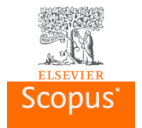
Orari di ricevimento
Lunedì dalle 15:00 alle 17:00 presso Ufficio Personale, Laboratorio di Tecnologie Chimiche ed Elettrochimiche, primo piano, Ed.6, Viale delle Scienze, 90128, Palermo, PA,
Contatti
Claudia Prestigiacomo is Assistant Professor of Chemical Engineering at University of Palermo.
Her academic qualifications include:
- Laurea, Chemical Engineering (University of Palermo, Italy, 2017);
- PhD, “Technological Innovation Engineering" XXXIII cycle (University of Palermo, 2021).
This was followed by a postdoctoral fellowship (2021) on solar heating Integration with industrial Plants and a postdoctoral fellowship (2022) on electrochemical treatment of polluted soil. From 2022 she was Assistant Professor in Industrial and Technological Chemistry sector (ING/IND-27) and she conduct her scientific activity in the “Laboratorio di Tecnologie Chimiche ed Elettrochimiche” of the Engineering Department of University of Palermo.
| Nome della materia | CFU | Corso di studi | Curriculum | ||
|---|---|---|---|---|---|
| PROCESSI DI TRATTAMENTO DI EFFLUENTI INDUSTRIALI | 6 | INGEGNERIA CHIMICA E BIOCHIMICA | INGEGNERIA CHIMICA E BIOCHIMICA |
Claudia Prestigiacomo main research areas are:
-
Waste valorization through hydrothermal liquefaction process: Hydrothermal liquefaction (HTL) process is considered a promising route to convert a wet biomass into a fuel precursor called biocrude (BC). The main role of HTL, in fact, is to decompose a wet matrix in simpler molecules and its first step is the hydrolytic cleavage of the constituent bio-macromolecules. The process has been mainly investigated in hot (200-400°C) and compressed water (50-280 bar) as solvent.
-
Molten salts based thermochemical processes: Molten salt driven catalytic processes offers a new and emerging technology approach for treating organic wastes to achieve negative CO2 emissions and a circular carbon economy by converting the low-value carbon content of the waste into high value solid carbon materials which can be reused, and also converting the hydrogen content of the waste into a low-carbon hydrogen-rich fuel gas.
-
Solar heating Integration with Industrial Plants: Study of industrial processes that can potentially be integrated with concentrated solar technologies and the experimental verification of the compatibility of specific unit operations with thermal power from concentrated solar technology.
-
Biodiesel production from vegetable oils: Study different heterogeneous catalytic systems to produce biodiesel from vegetable oils through the interesterification process. As an alternative to transesterification, the interesterification reaction uses methyl-acetate instead of methanol as acyl-donor with the production of triacetin, a compound that can be used as plasticizer agent in polymers, but also as additive of biodiesel, as it is soluble in it up to 10 wt% and it can improve several biodiesel properties (such as oxidative stability and cold flow) and fuel yield.
-
Technological development of high pressurized chemical and electrochemical devices.
-
Institut für Katalyseforschung und -technologie (IKFT), Karlsruher Institut für Technologie (KIT), Germany.
- Agenzia Nazionale per le Nuove Tecnologie, l'energia e lo sviluppo economico sostenibile, ENEA, Rome, Italy.
-
Department of Chemical Engineering, Taiyuan University of Technology, Taiyuan, China.
-
Univ. Artois, CNRS, Centrale Lille, Univ. Lille, UMR 8181-UCCS-Unité de Catalyse et Chimie du Solide, Lens, France.
-
Amap s.p.a, Palermo, Italy.







